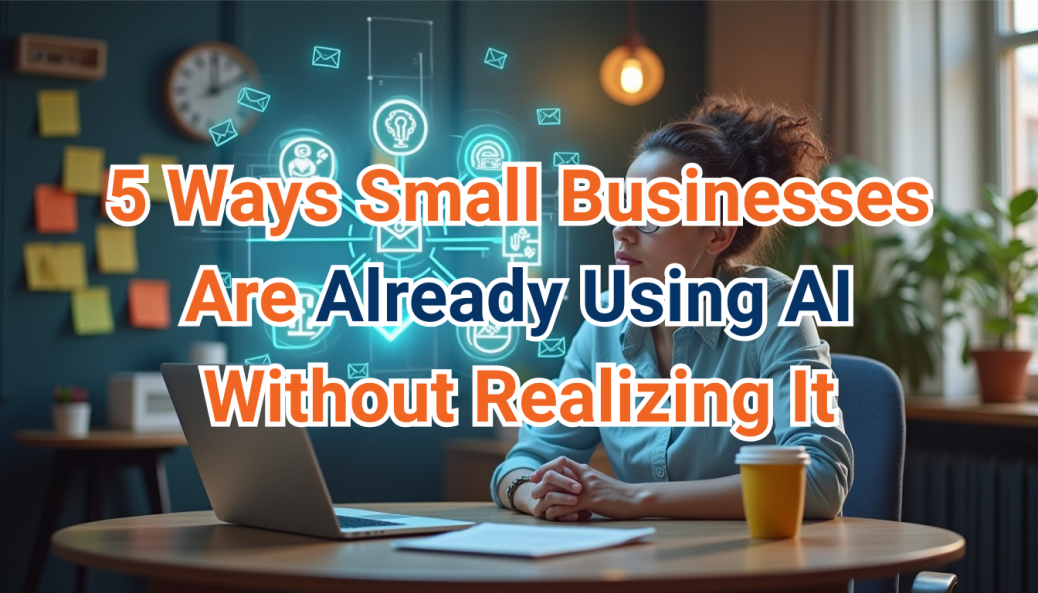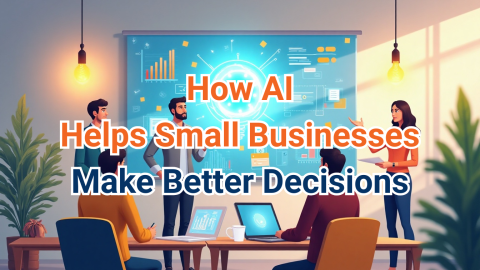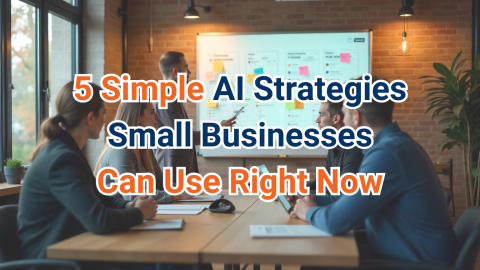Running a small business involves making countless decisions every day—many of them critical to growth and survival. From choosing what product to focus on, to deciding where to allocate budget or how to serve customers more effectively, the pressure on business owners is high. Fortunately, Artificial Intelligence (AI) is no longer just a buzzword or futuristic dream. It’s a practical tool available right now, and it’s changing the way small businesses approach decision-making.
Thanks to advancements in user-friendly software, AI business decision making is accessible to non-technical users and solopreneurs alike. Whether you’re analyzing customer trends, forecasting revenue, or choosing the right team members, AI tools can help you make faster, smarter, and more data-informed choices.
Real-Time Data Analysis
One of AI’s most powerful benefits is its ability to analyze large amounts of data quickly. Instead of sorting through spreadsheets and compiling monthly reports, AI tools like Tableau and Zoho Analytics provide real-time dashboards and visualizations.
This kind of immediate access to performance data allows you to identify what’s working and what isn’t—whether it’s a dip in sales, high-performing products, or marketing campaigns that need adjusting. It removes the guesswork and helps you take action based on facts.
Even if you’re not data-savvy, these tools present insights in a visual way that’s easy to understand. As a result, business owners can make daily decisions with more confidence and clarity.
Customer Insights That Drive Sales
Understanding your customers is key to long-term success, and AI makes that easier than ever. Tools like HubSpot and Pipedrive use AI to analyze how customers interact with your website, emails, and social content.
These platforms track behaviors like page visits, open rates, and purchase history to help you understand what your customers want. With that data, AI can recommend which leads are most likely to convert, what content resonates best, and which audiences deserve more attention.
In short, AI turns customer activity into clear, actionable sales strategies—something that would take days of manual analysis to uncover.
Smarter Financial Forecasting
Money management is one of the toughest challenges for small businesses. But AI is transforming how financial planning is done. Tools like QuickBooks and Fathom offer built-in AI features that help forecast income, detect unusual spending, and even suggest budget changes based on current trends.
These tools remove the need for complicated Excel formulas or deep accounting knowledge. You can set goals, track expenses, and adjust your financial plan in real time. This helps avoid unpleasant surprises and empowers smarter investment and staffing decisions.
Inventory and Supply Chain Optimization
If your business deals with physical products, inventory control is essential. AI systems like NetSuite and Katana can analyze inventory trends, seasonal demand, and supplier performance to help you decide when to reorder, what to stock up on, and where to cut back.
You’ll spend less time manually checking stock levels and more time focusing on growing your business. And because AI makes predictions based on historical data and external variables (like shipping delays or supplier patterns), it helps reduce waste, improve cash flow, and deliver products on time.
Improved Hiring and Team Management
Building the right team is another area where AI shines. Hiring platforms like Breezy HR and Recruitee use AI to filter applicants, assess job fit, and schedule interviews.
This is especially helpful for small businesses that don’t have a dedicated HR team. You can automate the most time-consuming parts of the hiring process while improving candidate quality. Some platforms even use AI to analyze employee performance and recommend training opportunities or retention strategies.
Final Thoughts
The days of relying solely on gut instinct are over. With tools that offer real-time data, customer insights, financial predictions, and staffing solutions, AI business decision making is not only possible—it’s already happening.
Even better, you don’t need a tech background or huge budget to benefit. Many of these tools are designed for small teams and solopreneurs, offering easy interfaces and affordable pricing. The real challenge is no longer access—it’s awareness.
By recognizing the value of AI and integrating it into your decision-making process, you position your business to respond faster, operate smarter, and grow stronger in a competitive market.





